Population Health News Roundup: March
IAPHS StaffIAPHS Members In the News
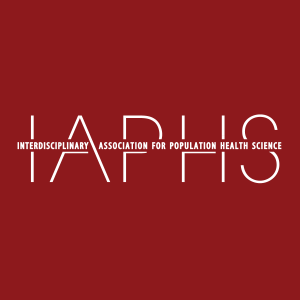 Discrimination and health at midlife: Discrimination based on socioeconomic disadvantage affected self-rated health in this longitudinal association study led by IAPHS member Thomas Fuller-Rowell. (Health Psychology, May 2018)
Discrimination and health at midlife: Discrimination based on socioeconomic disadvantage affected self-rated health in this longitudinal association study led by IAPHS member Thomas Fuller-Rowell. (Health Psychology, May 2018)
Opioids don’t discriminate, but also don’t harm equally: Opioid addiction cuts across all kinds of communities, but rates are higher in some groups and places than in others. IAPHS Member Shannon Monnat shares three factors linked to overdose fatalities. (US News & World Report, February 26, 2019)
Tackling dental disparities in Washington State: Dental therapists could improve dental health disparities in Washington State, say proponents of a bill working through the state legislature. Donald Chi, IAPHS Member and pediatric dentist, testified in favor of the bill. (TV Washington, February 13, 2019)
Renovated homes, healthier people? IAPHS Member Irene Yen is part of the research team looking at the Rental Assistance Demonstration program in San Francisco. (Housing Policy Debate, February 1, 2019)
A Health New Deal: Past IAPHS President Sandro Galea explains why a New Deal focusing on health may be the best deal of all.(Fortune magazine March 4, 2019)
It’s the context, not the individual: IAPHS members Jennifer Karas Montez, Mark Hayward, and Anna Zajacova suggest that US states influence how important education is for health. (Socius, March 11, 2019)
Tech Talk
 Artificial Intelligence a boon to people with disabilities: AI is opening doors, offering independence and improved communication. And the best is yet to come. (NOVA Next, January 30, 2019)
Artificial Intelligence a boon to people with disabilities: AI is opening doors, offering independence and improved communication. And the best is yet to come. (NOVA Next, January 30, 2019)
Global Health
The humanitarian crisis in Yemen is worsening: War and economic collapse are pushing more people into famine and disease. (Xinhuanet, February 18, 2019 and Reuters, February 14, 2019)
Bombs making Ebola treatment tougher: Doctors Without Borders facilities in Butembo and DRC attacked, making it harder to contain the spread of Ebola (World Health Organization, February 28, 2019)
Place
Firearm violence in the gap places: Income inequality at the county level is linked to more firearm homicides, particularly in African American populations. (University of Washington Epidemiology via Injury Prevention, February 20, 2019)
Where it’s more dangerous to walk: Pedestrian deaths are up, especially in certain states, (Governing.com, February 28, 2019) but not in Seattle. (KUOW Radio, March 4, 2019)
Retiring coal plants improves birth outcome: After eight California coal and oil power plants were retired, a reduction in preterm births was found. (American Journal of Epidemiology, May 16, 2018)
It ain’t easy being green: Accessing parks and green spaces is easier for some populations than for others. (CityLab, March 19, 2019)
Disparities
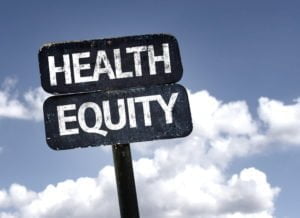 It’s a man’s, man’s, man’s, man’s world: In a world designed for men, women are more likely to be injured or killed in car and workplace accidents, be exposed to chemicals in the workplace, and more. (The Guardian, February 23, 2019)
It’s a man’s, man’s, man’s, man’s world: In a world designed for men, women are more likely to be injured or killed in car and workplace accidents, be exposed to chemicals in the workplace, and more. (The Guardian, February 23, 2019)
Unequal disaster recovery: Disaster recovery programs exacerbate inequality; poorer communities face many obstacles and often have very different experiences—-and worse outcomes. (NPR, March 5, 2019)
Medieval diseases among the homeless: Infectious illnesses such as typhoid are spreading through homeless populations in California, Washington State, and elsewhere. (The Atlantic, March 8, 2019)
Programs & Policy
 Minimum wage effects: Seattle’s minimum wage policy has increased labor costs in child care, but not supermarket food prices. (University of Washington News, February 6, 2019)
Minimum wage effects: Seattle’s minimum wage policy has increased labor costs in child care, but not supermarket food prices. (University of Washington News, February 6, 2019)
No more pizza signs on the tube: London bans junk food ads on public transit, aiming to curb childhood obesity. (CBC, February 26, 2019)
Osage nation and researchers get FRESH: With help from Dr. Valerie Blue Bird Jernigan, Osage communities are disconnecting from commodity foods, planting gardens, and connecting with their lost culture as part of the Food Resource Equity and Sustainability for Health (FRESH) study.
ACA may have helped California kids: Insurance access and well-child visits improved across all racial and ethnic groups, though parents still struggled with barriers. (Dornsife School of Public Health, published in Global Pediatric Health, February 10, 2019)
Trans fat ban seems to work: Trans fat levels in the blood of NYers who eat out frequently have declined since the ban took effect. (New York Times, February 28, 2019)

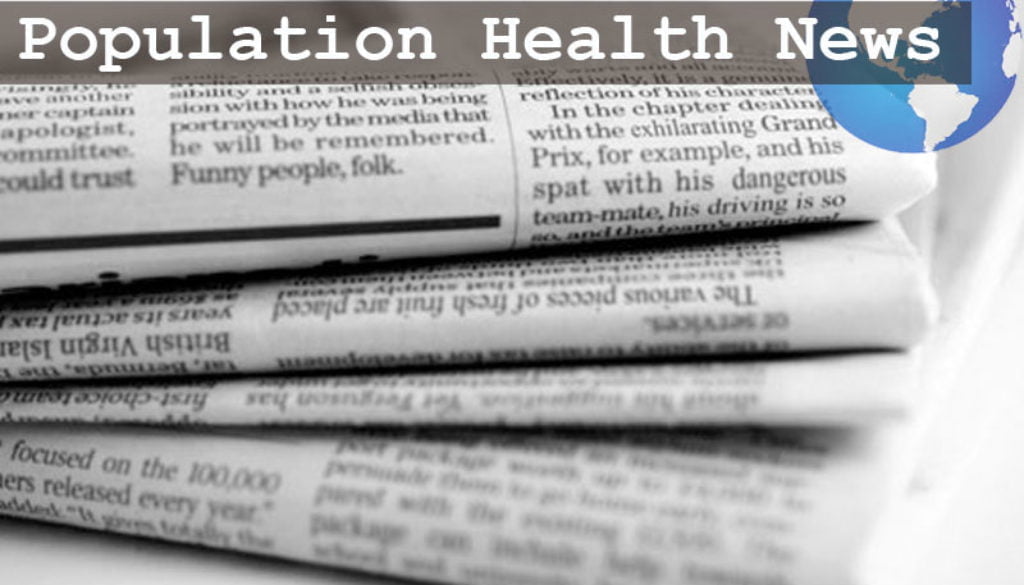


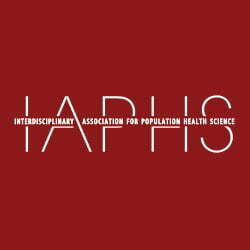

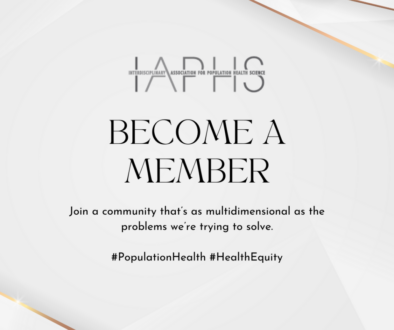

All comments will be reviewed and posted if substantive and of general interest to IAPHS readers.